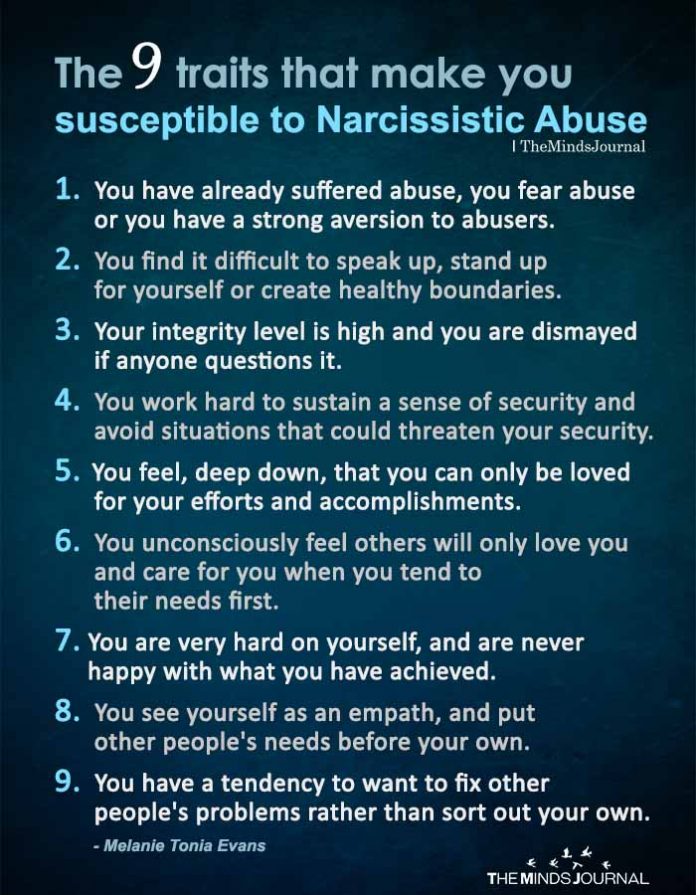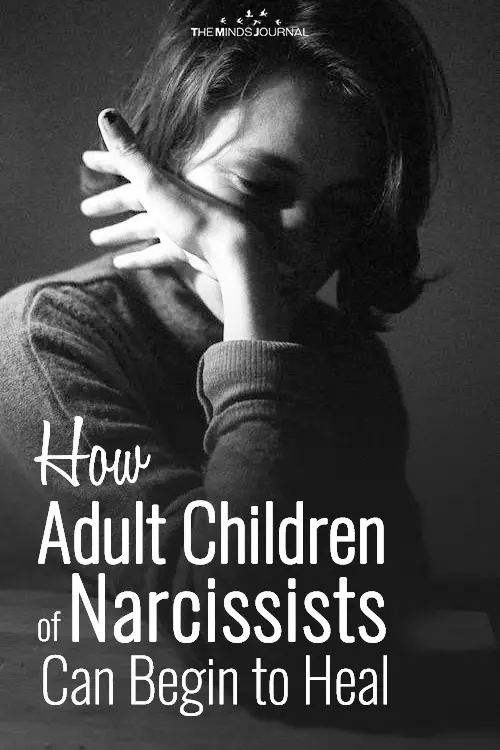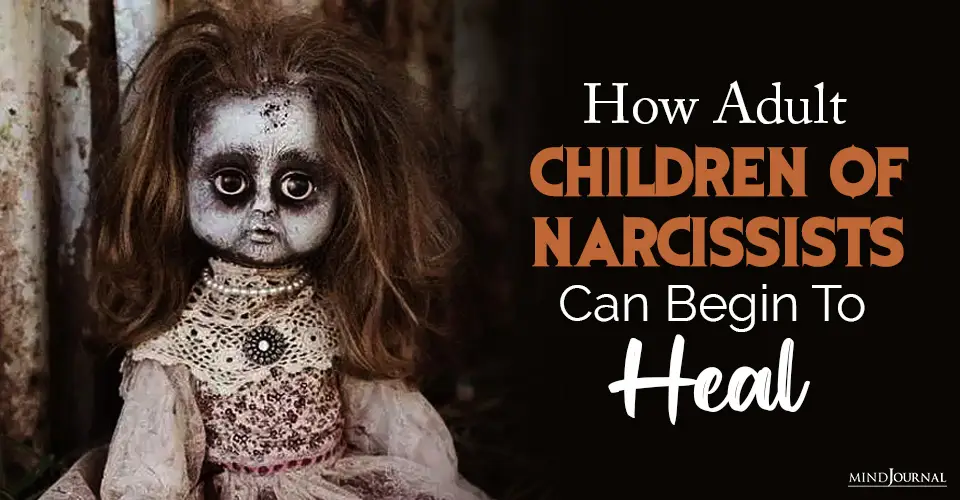So you’ve realized you have a narcissistic parent. Parental narcissism can be exceptionally damaging for children, even when you are an adult. Narcissistic parents are completely devoid of empathy and subject their children to mental emotional and even physical abuse.
They have an extreme sense of entitlement and will micromanage your life well into adulthood. However, there is still hope and you can fully recover from all the abuse and trauma. Let’s take a look at how the children of narcissists can start the healing process.
“The typical adult from a narcissistic family is filled with unacknowledged anger, feels like a hollow person, feels inadequate and defective, suffers from periodic anxiety and depression, and has no clue about how he or she got that way.”
~ Pressman and Pressman, The Narcissistic Family

Are you the adult child of a narcissistic mother or father?
As you may already know, living with a narcissist can be difficult for anyone, but growing up in the care of one can affect your life in very significant ways. For example, most narcissists use a horribly painful sort of manipulation called gaslighting – it’s the worst kind because it messes with your mind in ways you’d never expect. This is especially true for the children of narcissists, who can’t get away from it and have no concept of what “normal” actually looks like from the inside.
Many children of narcissists spend their whole lives thinking “I wasn’t good enough,” and wondering if their mothers/fathers/other caregivers could and would always be better than they.
Read 7 Things I Learned From Being Raised By A Narcissistic Mother
The faces of parental narcissism
“Narcissists have two faces — the one they wear in public, and the one they wear at home,” according to LightHouse.org. “Only those close to the narcissist have any idea there is more than one face. And the narcissist’s children know best of all because children – those who have the least power – are the ones the narcissist allows him or herself to be the least guarded around.”
So, kids of narcissistic parents are forced to pretend in public that all is well–all the while knowing that when they get home, things will be different. In some cases, they dread going home because the difference is so significant.
“Narcissistic parents lack the ability to emotionally tune in to their kids,” writes Karyl McBride, Ph.D. “They cannot feel and show empathy or unconditional love. They are typically critical and judgmental.”
Many kids of narcissists express the same kind of frustration: everyone thinks their narcissistic parent is a saint–the best person ever, McBride says, noting that “while at home their children suffer in silence with their parent’s tantrums, disinterest, and put-downs — this is clearly NOT the most wonderful person if you truly know them — not even close.”
What are you trying to prove?
“Because of its insidious nature, gaslighting is one form of emotional abuse that is hard to recognize and even more challenging to break free from. Part of that is because the narcissist exploits one of our greatest fears – the fear of being alone.”
~ From my book on overcoming gaslighting and narcissism, Take Back Your Life
When you’re raised by a narcissist, you might spend your life trying to prove something–maybe that you have value. Whether you choose to become “perfect” or you go to the other extreme, your narcissist will likely actively discredit everything you do, say or feel. You might start to think you don’t matter–and that you’re not even all that “real.”
I remember believing that nothing I felt or wanted was as real as whatever my narcissist felt or wanted. Even during a recent interaction, I expected a third party to instantly assume I was wrong because
Your thoughts, feelings, and opinions are rarely if ever, validated by a narcissistic parent–and when they are, it’s only when you happen to feel the same way your narcissist does. This continues into adulthood for most children of narcissists.
Once you realize that, you might even start to tell yourself that your opinion is, in fact, always consistent with the narcissists. It causes so much less trouble, and you’re treated to the illusion of approval if you comply.
But the fact we must remember is that narcissists can’t feel empathy–so they aren’t really capable of changing their opinions. They believe they can’t be wrong.
Read 6 Damaging Lies We Learn From Narcissistic Parents
You get to write your own story
“…all narcissistic parents fail to treat their children as authentic individuals who have their own unique characteristics and needs,” says LightHouse.org.
“Narcissists treat their children as mere blank screens for projecting their own internal ‘movies’ onto.”
You see, by always acting like my thoughts, feelings, and opinions had no value (like she was “better” than me), my narcissist inadvertently made me feel worthless, not good enough, not important.
Even today, anything I say to my narcissist that is contrary to her opinion is met with an eye roll and a wave of dismissal.
But this is nothing new, and in some ways, it’s not this person’s fault. Growing up, every idea I had was, according to what I saw and heard, eye-roll-worthy, and very little of what I said or did was treated as valuable. Still, today, she doesn’t respect me or my opinions, but now, I understand that she doesn’t need to–I don’t need to have her approval to be good enough.
Read How Adults Can Get the Distance They Need from Toxic Families
This is a fairly textbook kind of narcissistic manipulation, according to my research over the years.
“Adult children of narcissists typically describe their parents as mean, phony, self-absorbed, judgmental, dishonest, immature and manipulative,” says LightHouse.org.
Evolution is inevitable
The healing process for an adult child of a narcissistic parent is a long and sometimes difficult one–but it’s worth the effort. Whether you walk away completely or you choose to limit your relationship to only necessary interactions, you would be wise to give yourself space you’ll need to evolve and grow into the individual you’re meant to be.
As the adult child of a narcissist, you’re bound to have picked up a few (or more) thoughts, feelings, and beliefs that aren’t really your own. So, once you get your space, start there: figure out exactly what you believe, and what you don’t. You might be surprised to find out which beliefs or thoughts you’ve been carrying around for all these years for no reason.
The next step is to begin to embrace the fact that you’re an individual who has value. Your thoughts, feelings, and experiences are legitimate and worth hearing about–and you are just as good as anyone else.
Therapy can help you heal
Sometimes, our wounds are too deep to heal on our own. While some of them might kill ourselves trying to live up to that impossible standard our narcissistic parents set and others choose to go the opposite direction, all of us can benefit from learning to do better for ourselves.
Read 30 Ways In Which Narcissistic Parenting Affects A Child
McBride points out that effective therapy for adult children of narcissists has three primary steps.
- Understand the background, history, and diagnosis
- Deal with the feelings related to the history
- Begin to re-frame and view life through a different lens.
“The Wild West philosophy of ‘get over it already’ does not work with this recovery program, nor do simple affirmations or initial cognitive-behavioral work,” McBride says. “This specialized recovery involves cleaning up trauma first and accepting that your parent is not going to change. The change will be within you.”
Written by Angie Atkinson
Originally appeared on Queenbeing.com
“You do not owe anything to abusers.” – Diana Macey
Being raised by a narcissistic parent can feel like an unending nightmare. When you experience narcissistic abuse from childhood, you become vulnerable to trauma repetition as an adult. This can severely affect your relationships with yourself, your romantic partner and everyone else. Hence, it is crucial that you start the healing process as soon as you can regardless of your age, even if you are still a teen living with your parents. You need to set boundaries and create a better life for yourself.
Understand that it is possible to get out of this cycle and heal yourself even when you have experienced a lifetime of abuse. Once you realize that your narcissistic parent is suffering from a mental disorder, it gives you the validation that nothing is wrong with you and it was never your fault, to begin with. However, healing from narcissistic abuse of parents requires you to work on yourself, focus on strengthening your inner being, building your self-esteem and going through therapy, when needed.
You have the strength inside to overcome this. All you need to do is look inside.










Leave a Reply
You must be logged in to post a comment.